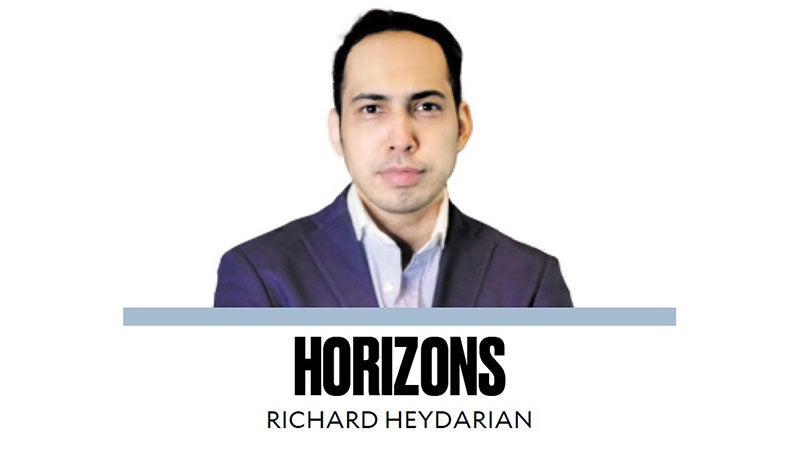The age of the unthinkable

History never repeats itself [but] man always does,” lamented the French philosopher Voltaire. Events nowadays feel a tad surreal, if not dizzyingly dispiriting. Ours is an age filled with anguish over an unassured future. Things that once seemed unthinkable are now perilously prosaic—if not expected.
Take, for instance, the case of Vice President Sara Duterte’s impeachment trial. In brazen defiance of our Constitution as well as legislative rules and precedence, the Senate effectively reneged on its duty by first, “dribbling” the articles of impeachment transmitted by the House of Representatives, and even more unabashedly, effectively “freezing,” if not dismissing the trial altogether. What followed was a bewildering procedural “ping-pong” between the two branches of the legislature, which made a mockery of our democracy. We are now teetering on the verge of a constitutional crisis.
Quite understandably, Senate President Francis Escudero has been arguably “the most hated,” or at the very least, “most mocked” politician in the past week or so. After all, his characteristic sophistry was too transparently self-serving for anyone to miss. Putting aside his storied track record of political promiscuity and his controversial aesthetic choices in more recent times, Escudero’s legalese shibboleth fooled no one. When first challenged by the country’s legal luminaries on his interpretation of “forthwith,” he simply leaned on multifarious logistical excuses. When his mediocre legal acrobatics were exposed later on, he simply passed the buck to the Supreme Court, while also insisting on the Senate’s primacy in determining the course and coordinates of the trial.
“We’re not equal on the matters of impeachment,” he ranted when the House rejected his inexplicable decision to orchestrate the “remanding” of the impeachment complaint. “The House has no power to refuse the impeachment court’s orders. This was not like in a bicameral conference that we need to agree. The party and the court are not equal in any case, in any part of the world,” he added, simply going full “Karen” mode amid a brewing public backlash.
The reality, however, is that Escudero’s dispiriting sophistry in the name of political survival is just the tip of the iceberg. It reflects a profound breakdown in our constitutional democracy.
It’s remarkable how three years after the departure of former president Rodrigo Duterte, we are still stuck with a Senate that is too afraid to hold the Dutertes accountable. Lest we forget, time and again the Senate simply rubber-stamped and acquiesced in the face of Duterte’s authoritarian blitzkrieg between 2016 and 2022. Not to mention, it barely lifted a finger to protect one of its former members, Leila de Lima, from a neo-medieval witch hunt. In 2025, more than enough senators seem reticent to even convene a trial for VP Sara, even though she is far less powerful and popular than her father. They’re not even pretending to be interested in holding the Dutertes accountable for anything, even after the Vice President openly threatened to assassinate the commander in chief.
“When the gap between ideal and real becomes too wide, the system breaks down,” historian Barbara Tuchman has warned. Lest we see a major change under the new Congress, I’m afraid even our aspiration to a constitutional democracy would be put into question. Yet, we can’t understand our domestic troubles without looking at the larger world out there. Ours is a century of uncertainty and chaos. The 21st century opened up with the 9/11 terror attacks. Almost exactly a decade later, popular uprisings toppled seemingly invincible dictatorships across the Arab world. The third decade of the century opened up with a near war between the US and Iran, followed by a years-long pandemic that ravaged the world economy and claimed tens of millions of lives.
As if that weren’t enough, Russia single-handedly shattered the post-Cold War international order by invading a sovereign European neighbor. A year later, the most horrific chapter in the Arab Israeli conflict opened up, paving the way for an all-out conflict between the Middle East’s two most powerful militaries in recent days. Is humanity heading into the abyss?
Reflecting on 14th-century Europe—the saeculum horrorirs when plagues, wars, and religious conflict seemingly spelled the end of the world—Tuchman counseled, “If our last decade or two of collapsing assumptions has been a period of unusual discomfort, it is reassuring to know that the human species has lived through worse before.”


















